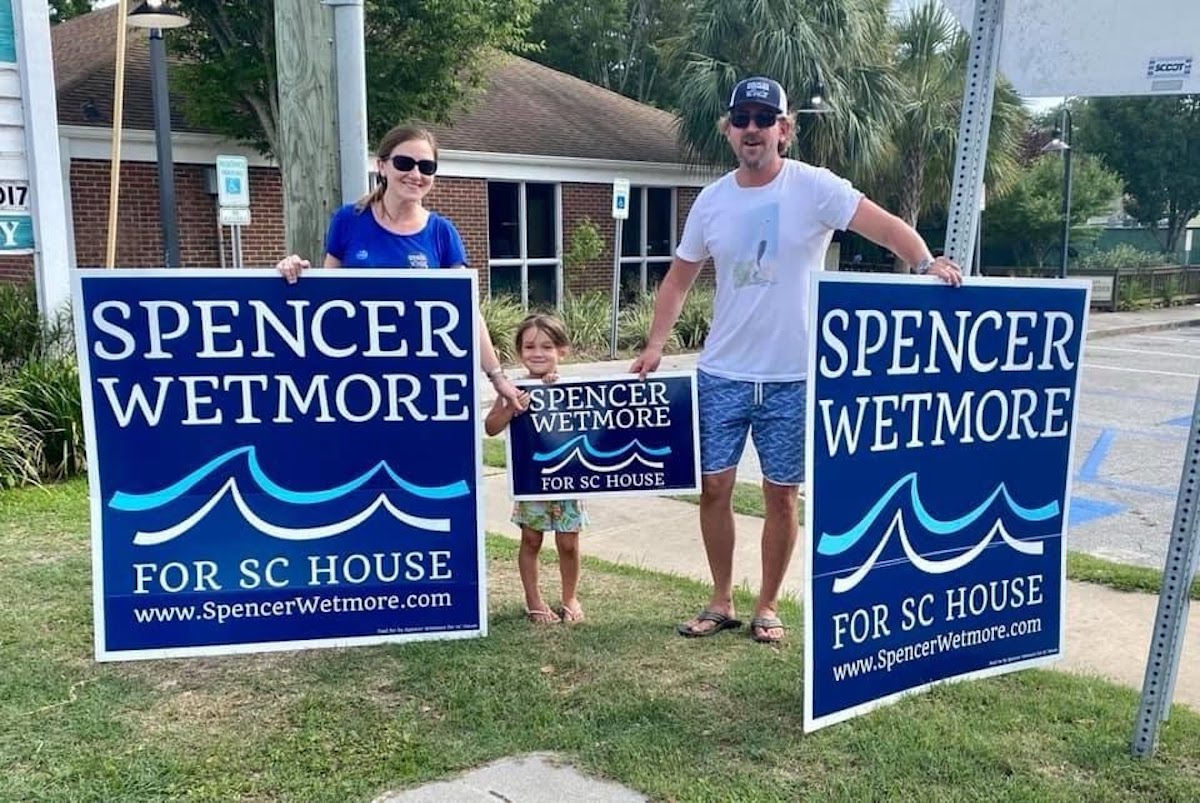By Skylar Laird
SCDailyGazette.com
COLUMBIA — In an effort to get more women and other caregivers in office, a South Carolina legislator proposes letting campaign donations pay for childcare.
If the proposal passes, South Carolina would join 30 other states that allow candidates and sitting politicians to draw from campaign funds for childcare, according to Vote Mama Foundation, a national nonprofit founded in New York and focused on eliminating barriers to mothers running for office. Candidates for federal government have been able to use campaign money on childcare since 2018.
Rep. Spencer Wetmore, a Folly Beach Democrat, started running for office in 2020 when her daughter was 4 years old. She was lucky to have family nearby to watch her daughter when she and her husband were at events or knocking on doors, she said.
“A lot of people don’t have the luxury of sending their kids to their grandparents’ house,” Wetmore told the S.C. Daily Gazette on Monday, Dec. 18.
In February, the House Ethics Committee decided that chamber’s members and candidates seeking their seats could draw from campaign funds to pay for childcare. Wetmore’s proposal would put that decision in state law, extending the committee’s interpretation for the House to anyone occupying or running for elected office at any level of government.
The proposal, pre-filed for the session that resumes next month, would cover childcare costs only for time spent campaigning or serving in office. It’s similar to existing laws, which allow candidates to use funds raised while campaigning to cover expenses like travel and meals.
Wetmore’s goal with this proposal is to make it easier for people to afford to send their kids to daycare or after-school programs while they campaign or, if elected, spend their days in the Statehouse, she said.
“The most important thing for me is to bring new voices to the table,” Wetmore said.
While the law would apply to anyone running for office, the burden of childcare more frequently falls on women, meaning this proposal could help shift that number, said Kelli Parker, spokesperson for the Columbia-based Women’s Rights and Empowerment Network.
“Electing more women is just good politics,” Parker said.
Only about 2% of South Carolina’s legislators in 2022 were women with children under the age of 18, a Vote Mama Foundation study found.
Historically, the Palmetto State has ranked among the nation’s worst in terms of female representation in the Legislature. In 2023, women made up 14.7% of the 170 people in South Carolina’s Legislature, with five in the Senate and 20 in the House, according to Rutgers’ Center for American Women and Politics. Only Mississippi and West Virginia had a smaller percentage of women in their Statehouses.
South Carolina ranked last nationwide from 2003 to 2012, the last four of those years without a single female state senator.
People who care for a relative with a disability or other medical condition would also be allowed to use campaign funds to hire help for that person while campaigning or sitting in office as well. For example, someone caring for an elderly parent would be able to use money they raised while campaigning to make other arrangements.
“By allowing candidates to use their campaign funds to cover both childcare and dependent care expenses, South Carolina can galvanize people who may have never considered running for office before,” Vote Mama Foundation said in the news release.
NOTHING NEW
States that already allow campaign funds be used for childcare: Alabama, Arkansas, California, Colorado, Connecticut, Delaware, Georgia, Illinois, Kansas, Kentucky, Louisiana, Maryland, Minnesota, Montana, Nebraska, New Hampshire, New Jersey, New Mexico, New York, North Carolina, Oregon, Rhode Island, Tennessee, Texas, Utah, Vermont, Virginia, Washington, West Virginia, Wisconsin
Source: Vote Mama Foundation
Skylar Laird covers the South Carolina Legislature and criminal justice issues. Originally from Missouri, she previously worked for The Post and Courier’s Columbia bureau.







